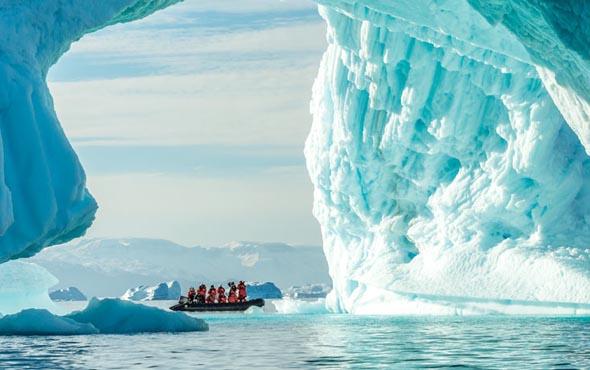
NORWAY & RUSSIA ARCTIC

Norway's previously long-standing cordial relations with Russia have deteriorated to the point that there is a real chance that simmering feelings could escalate, leading to a breakdown of cooperation in the oil and gas sector.
So far, despite the heightened tension between the east and west over the Ukraine conflict, both countries have managed to maintain their mutual interests.
But in recent months sharp diplomatic incidents involving the remote Arctic Svalbard islands have ratcheted up the tensions between Moscow and Oslo to what some experts say are potentially dangerous levels. Both sides have a great deal to lose.
In 2010, Norway and Russia agreed on a compromise on the delimitation line in the Barents Sea, freeing up a 40-year-old border dispute that had effectively seen the development of oil and gas resources frozen.
Cooperation since then in the oil space has increased.
State-controlled Statoil and Rosneft in 2012 signed a cooperation agreement to jointly explore offshore frontier areas of Russia and Norway and to conduct joint technical studies on two onshore Russian assets.
Two months ago, Statoil said it was continuing its move to deepen its relations with Rosneft, despite international sanctions against the latter, confirming it was planning to drill four wells in Russia with Rosneft in 2015 and 2016.
Statoil argued the activities in Western Siberia and the Sea of Okhotsk did not breach any of the sanctions and Statoil was in continuous dialogue with authorities to ensure that it was sanctions-compliant and to get authority approvals.
There have also been moves in the opposite direction in recent years. Russia's second biggest oil producer Lukoil has been in Norway for the last couple of years with an office in Oslo and has taken interests in two exploration licenses, one with Sweden's Lundin Petroleum as operator and the other operated by Centrica.
Rosneft also has a stake in a license in the Barents Sea operated by Statoil.
Confrontation fears
But recent events suggest confrontation about new developments may be on the horizon.
The Norwegian oil ministry earlier in the year launched its 23rd licensing round, which included some blocks in waters offshore Svalbard.
This month it emerged that Russia sent a sharp diplomatic note to the Norwegian foreign ministry saying Norway had violated a treaty by offering drilling opportunities in those blocks.
Russia claims the Svalbard Treaty of 1920, signed by 40 countries including it and Norway, covers Svalbard's waters and Moscow must be consulted about any activity there.
Norway argues Svalbard is part of the Norwegian Continental Shelf and it needs no one's permission to offer the blocks. So far neither side is backing down.
Norway's Foreign Minister Borge Brende told a newspaper his government alone manages resources on the Norwegian shelf, and it was not interested in consulting with other countries' governments.
Then four weeks ago Russian deputy Prime Minister Dmitry Rogozin, who is banned from visiting Norway, the US and the EU due to his involvement in Ukraine's destabilization, suddenly visited Svalbard.
Norway's government summoned Russia's ambassador to explain.
Professor Godzimirski, at the Norwegian Institute of International Affairs, said Rogozin's visit was clearly designed as a provocation.
Frederic Hauge, president of the Oslo-based Bellona Foundation, said Norway must back down and withdraw the disputed blocks.
"This is really hot stuff. I am very afraid of what's happening. We must reduce the geopolitical conflict," he said.
Others take a more measured view, saying that economic self interest and pragmatism will continue to triumph over politics.
"Of course it can escalate further," said analyst Espen Erlingsen at consultancy Rystad Energy.
"But my opinion is that they will come to an agreement. They will not allow it to disrupt oil and gas cooperation. It is too important for that to happen."
oilandgaseurasia.com





